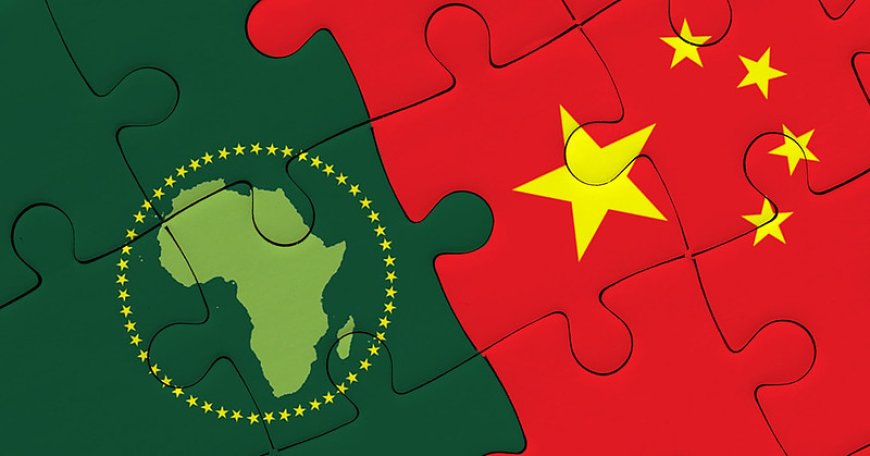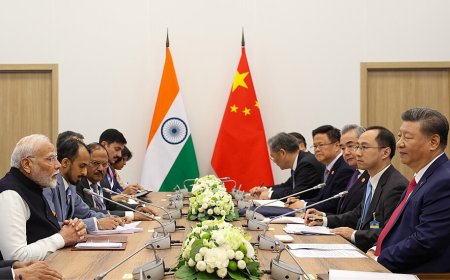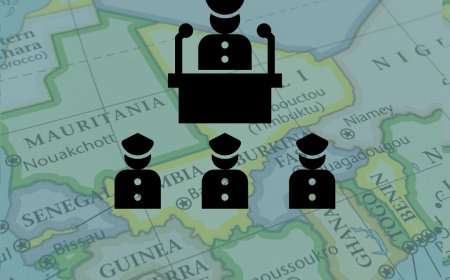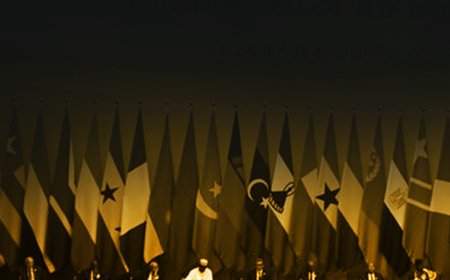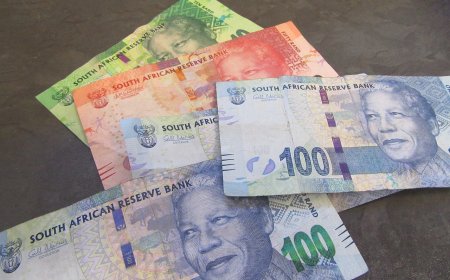This article is part of a series on the effects of the war in Ukraine on African countries. The series is edited by Chris O. Ogunmodede.
Summary
- The war in Ukraine has triggered geopolitical realignments likely to erode western domination of global affairs.
- For African countries wary of years of Western paternalism, a rising China and a resurgent Russia creates the possibility of a multipolarity that could create geopolitical opportunities for Africa.
- China is shoring up support for African positions on the war in Ukraine by amplifying African critiques of the US-led international order.
- African countries do not wish to be proxies for great power competition.
- The war in Ukraine may bolster China’s security initiative in Africa.
China’s relationship with African countries has deepened significantly since the turn of the millennium, as has its influence on the continent, reflecting China’s rise to superpower status. China’s increased prestige and influence around the world also makes it a competitor of the United States—the globe’s other superpower—and the prime challenger to its international order. The war in Ukraine presages what many have referred to as a “new Cold War,” a new battlefront pitting Western liberal democracies on one side against a resurgent China and Russia on the other.
Russia’s invasion of Ukraine has exacerbated tensions in the international system and triggered a realignment of the geopolitical landscape, with African countries coming under increased pressure from the U.S. and its European allies to back a tougher line against Moscow. While the Cold War ended with the dissolution of the Soviet Union and the decline of China’s influence in Africa, history is unlikely to repeat itself as African countries are increasingly aligning their various interests with Beijing’s ambition, seemingly at the expense of their legacy relationship with the West.
Many countries in Africa have stated a desire to stay clear of a great-power competition between Beijing and Washington, with increasing calls heard across the continent for a revival of the Non-Aligned Movement in order to preserve their autonomy and avoid getting entangled in a geopolitical competition between major powers. They cite their experiences of the Cold War, where many newly independent African states were turned into a battleground for geopolitical contests and a zero-sum struggle for influence.
Africa’s varying positions on the war in Ukraine stem from values and principles enshrined in the African Union charter as well as a desire for the continent to make its voice heard and respected within the international system. These principles include respect for national sovereignty and territorial integrity. They also suggest that African ideals like national autonomy and the equality of every state, mutual respect and peaceful resolution of conflicts, when combined with their international priorities, increasingly lean toward China’s vision of global order, as well as the objectives Beijing seeks to attain in the contest for global influence.
In the aftermath of Russia’s invasion of Ukraine, the U.S. and the European Union moved swiftly to impose tougher-than-expected sanctions on Russia and led the international campaign to isolate Moscow. But while those efforts found resounding support among Western governments and their close partners in the Asia-Pacific region, they have been met with hesitance and apprehension among many African countries, and even outright rejection by some others. For instance, South Africa, a member of BRICS—as the group of five major emerging economies that includes Brazil, Russia, India and China, as well as South Africa —justified its decision to abstain from a United Nations resolution condemning Russia’s invasion by alluding to national principles of dialogue and multilateralism. South African President Cyril Ramaphosa alluded to this position in remarks he made in March to South African lawmakers when he said that “… There are those who are insisting that we should take a very adversarial stance against Russia. The approach we are going to take [instead] is … insisting that there should be dialogue.” This non-aligned stance broadly represents the position of most African countries on the Russia-Ukraine war. Coincidentally, South Africa’s expressed “neutrality” is similar to the stance adopted by China. But where Beijing’s position may be influenced by great-power rivalry and a rejection of what it considered to be Western hegemony, African desire to chart a middle course between the West and Russia is largely influenced by the possible emergence of a multipolar order caused by a shifting in the global balance of power from the West to the East. For African countries, this desire for a shift in the international order represents a rebuke of Western domination of global affairs and the “coercive diplomacy” that has typified Africa’s relationship with the West. To that end, African countries favour a nonalignment that advocates neutrality in a great-power competition, a diverse range of international partnerships beyond “legacy” relationships with Western countries and the use of multilateralism in search of solutions to key issues of peace and security in the international system.
But on the most current question of international peace and security, the varying positions taken by African countries in the aftermath of Russia’s invasion of Ukraine suggests that they are not reading from the same script as the West. A U.N. General Assembly resolution condemning Russia’s invasion that was overwhelmingly supported by the West was backed by 28 African countries, while one country—Eritrea—voted against it, 17 others voted to abstain and eight did not record a vote at all. The different positions taken by the U.N. 's 54 African members was followed by a wave of analysis trying to parse their different votes, as well as increased pressure on these countries by the U.S. and its European allies to back a tougher line against Russia. But the U.N. vote does not necessarily signal approval of Russia’s actions in Ukraine, but rather reflects a hesitance to support Western efforts to isolate Russia that don’t take African interests and concerns into account. African countries are particularly concerned about the devastating impact that crippling sanctions on Russia and a prolonging of the conflict might have on global disruptions that could affect food security and the cost of fuel and other commodities on the continent. Those concerns are understandable given skyrocketing increases in consumer prices across the continent.
Elsewhere, China’s dominant position in the global food and oil supply chain as well as its integration into Africa’s economies means that Beijing’s policies will significantly impact the continent’s worsening crises of food and fuel. Amid deepening fears of a looming food crisis many argue is due to disruptions in global supply chains, China’s Belt and Road Initiative, or BRI, offers room for a timely intervention through established logistics and connectivity networks that facilitated COVID-19 response in Africa. African countries will probably look to China to close the gap in food supplies given China’s large reserves of grain and other food products. Chinese and African opposition to sanctions imposed by the West on Russia, as well as Beijing’s new “strategic partnership” with Moscow, means that China can likely still access Russian grains that would create a surplus that could be supplied to Africa and other regions of the world.
Despite growing concerns about the numerous lockdowns in Shanghai and other parts of China, and their impact on the domestic economy and global supply chains, the impact of those shutdowns has been limited to occasional delays affecting prices and it’s unlikely that food supplies will be halted altogether. Although the EU, the U.S. and Canada are better positioned to supply grains and oil to African countries, the provincialism seen on display with coronavirus vaccine nationalism—described by some African leaders as “vaccine apartheid”—suggests that in a full-blown crisis, Africa realistically cannot count on the benevolence of Western countries that are more likely to prioritize their domestic concerns. The same considerations apply to oil and gas supplies. As the European Union moves increasingly to wean itself off Russian energy imports, the gap in European markets could be filled by African countries in an unlikely scenario where political conditions are not attached to trade. Similarly, if China reduces its demand for Russian oil and gas, oil-producing countries in Africa stand to gain, at least in theory, because global oil supply has to be met and alternative sources are in Africa.
Meanwhile, China is increasingly moving to to converge its position on the Ukraine conflict with that of African countries, in ways the West appears blind to. After a recent meeting with several African foreign ministers, Chinese Foreign Minister Wang Yi said that there was a broad consensus on several issues including agreeing that “there are more than two options, namely war and sanctions, for dealing with international and regional hotspot issues, but dialogue and negotiation is the fundamental solution, which should be adhered to under the current situation.” Wang added that all countries have the right to autonomous decision-making and should not be forced to choose sides in a competition between global powers. “We should resist the Cold War mentality and oppose confrontation between camps,” he said. These comments were intended to distinguish China—with its famous “non-interference” principle—from Western countries that have ramped up pressure on African countries to condemn Russia more forcefully, and indeed, the various African reactions since the outbreak of war in Ukraine suggests that continental opinions diverge sharply from Western ones.
If there was any doubt that western influence and appeal in Africa has waned in favour of Chinese ideas, then recent events and sentiments have made this fact even more glaring. Even Kenya, one of the few African countries that condemned Russia’s invasion of Ukraine in explicit, decisive terms, noted Western hypocrisy and double standards at the same time. Its ambassador to the U. N., Martin Kimani, recalled precedents that had been set in the Security Council by Western powers like the United States that invaded other countries against international law and faced no consequences as a result. The 2003 invasion of Iraq by U.S. forces, the 2011 NATO-led invasion of Libya and France’s 2013 intervention in the Sahel are some recent examples that have been compared to Russia’s invasion of Ukraine. The war in Libya in particular—and its ramifications for security and stability well beyond Libyan borders—continues to be looked upon unfavourably, and the presence of large populations of Muslims across Africa has drawn parallel to perceived Western indifference to the humanitarian crisis in the Middle East as well as Palestine, when contrasted with the compassion extended towards Ukrainian refugees. The discriminatory treatment meted out to African students trying to flee from Ukraine to neighboring European countries have done little to shift perceptions on the continent, and may have even hardened them. According to Kimani,“" …There are many people in many parts of the world who would like to see other regions gaining strength and would like to see the end of Western domination of the world order, putting it simply ... of course, no right-thinking person in Africa or anywhere in the world looks at what is going on in Ukraine now and thinks that it's a good thing ... but many people do see the hypocrisy,” he added.
The West appears to be scarcely cognizant of the impact of China’s rise to world-power status, and how its broadened diplomatic relations with African countries may have contributed to eroding African confidence in the Western-led international order. Some African leaders and policymakers appear to appreciate Chinese diplomacy over what they regard as Western coercion. In recent years, Russia and China have become important security partners for African countries isolated by the West, by providing arms and training their security forces, to cite two examples. It is not far-fetched to assume that some of these countries may have voted to abstain on the U.N. resolution as they consider China and Russia as critical partners in the face of possible future sanctions and intimidation from the West. The role Russia played in keeping Syrian President Bashar al-Assad in power despite Western attempts to dislodge him could give Moscow credibility that it can leverage in an attempt to make inroads among African governments.
The war in Ukraine may also provide a boost to China’s Global Security Initiative that is being actively promoted in Africa as a means to converge their security interests. The initiative touts familiar principles of non-interference in the internal affairs of other countries, the right to self-determination, rejecting double standards highlighted above as well as building an effective and sustainable security architecture. This security initiative creates an opening for African countries with fractured relations with the West, who would likely find a security partnership with China attractive.
Relations between China and African countries have been on an upward trajectory for the last two decades with initiatives such as Forum on China Africa Cooperation, or FOCAC, and the BRI working to consolidate China’s diplomatic gains on the continent. For African countries frustrated by and wary of Western paternalism, a resurgent China and Russia creates the possibility of a multipolarity that could create geopolitical opportunities for them. Despite the lack of common African positions on diplomatic and security matters, China will most likely build on the momentum generated by the Ukraine crisis to push for reforms in the U.N. Security Council, while seeking to erode the West’s dominance in International affairs.
About the Author
Cliff Mboya
Dr. Cliff Mboya is an Africa-China-US analyst and International relations practitioner. He is an Associate Researcher at the African Centre for the Study of the United States (ACSUS) at the University of Witwatersrand and a Research Fellow at Afro-Sino Centre of International Relations.
